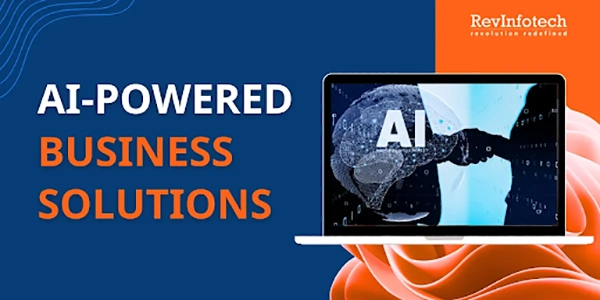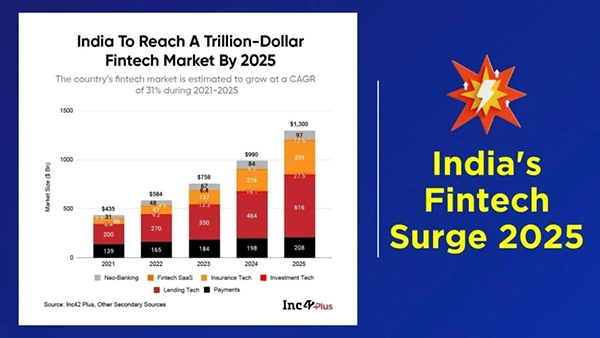Top FinTech Innovations Driving Digital Finance in 2025
Have you ever wondered how finance is expanding rapidly and is becoming the fastest-growing sector in the world? The finance industry is not just evolving – it is being prepared to bring a revolution that people will remember. In 2025, Fintech is driving how money grows, moves, and is protected.
You may think, but how? With the help of AI-driven banking, which is enhancing every service to meet your needs, decentralized systems that add a full stop to the need for a middleman and a few others. These technologies are helping to cross barriers by barriers.
This is resulting in a faster, smarter, and more inclusive financial world. Want to explore these reshaping technologies in detail. Read this article, which covers the FinTech innovations and technologies that are driving Finance in 2025.
Key Takeaways
- AI is playing the main role in driving modern finance through personalization and more.
- Decentralized finance has achieved more transparency and user control.
- Blockchain is the leader in maintaining transaction records with transparency.
- Embedded finance makes banking facilities seamless and directly integrated into apps and other platforms.
Impact Of Financial Technology
Financial technology (FinTech) has rebuilt our financial systems to be faster, more connected, and open to more people. This year alone, we have seen major innovations that have broken down old barriers, making it easier for anyone to build wealth and manage their finances with confidence. Among all of these improvements, there are some that stand out the most.
| Features | Impact | |
| AI | Personalized banking, fraud detection, and AI investment platforms | More accessible wealth management, safer transactions, smarter customer service |
| Embedded Finance | Financial services built into non-financial apps | Everyday banking made seamless and convenient |
| Blockchain | Decentralized and transparent | Secure cross-border payments and financial record-keeping |
| Decentralized Finance | Peer-to-peer lending and trading without banks | Transparency, user control, and an alternative to traditional institutions |
| Cybersecurity | Biometric authentication, AI threat detection, behavioral biometrics | Stronger protection against evolving cybercrime threats |
| Automation | AI, machine learning, and RPA to automate processes | Lower costs, faster approvals, better customer experience |
| Green Finance | Sustainable investing platforms | Aligns investments with environmental and social responsibility |
| RegTech | Automated compliance reporting, AI risk detection | Simplifies regulation, saves time and money |

AI Behind Smarter Finance
Artificial Intelligence (AI) is the driving force of finance. AI software can scan enormous amounts of data in seconds to give us insights that previously weren’t available. That is being utilized to give us incredibly personalized banking experiences, from AI-based mobile apps that give consumers individualized financial advice and budgeting recommendations.
But AI’s role in finance goes far beyond personalization. It’s a useful tool for fighting fraud. AI systems can detect suspicious activity in real-time and protect consumers and financial institutions from cybercriminals. In investing, AI is making wealth management more accessible to everyone, not just those who are already wealthy. These automated platforms use algorithms to create and manage investment portfolios and, by doing so, offer a low-cost alternative to traditional financial advisors.
Banking Made Easy
With this advanced technology, you can take out a loan, purchase insurance, or make investments by simply using your preferred app. That is thanks to embedded finance, one of today’s hottest FinTech trends.
Embedded finance injects financial services into non-financial platforms to enable banking to become part of daily life. We’re already seeing it in “Buy Now, Pay Later” features that are integrated into shopping platforms. To learn more, check out TechZeel.
Blockchain
Blockchain, the technology that is the core of virtual currencies such as Bitcoin, is on a path to transform the old financial system.
Essentially, blockchain is a decentralized and secure online ledger that maintains records of transactions in a transparent and tamper-proof manner. It has enormous potential in all aspects, ranging from cross-border payments to the trade of stocks.
- Unlike systems that work on a centralized system, blockchain operates on a decentralized network of computers.
- Information is stored in encrypted blocks, thus making it resistant to tampering.
- All transactions on the ledger are visible to the public, which creates a system that is difficult to manipulate.
DeFi
Blockchain’s rise has also given rise to Decentralized Finance (DeFi) as an alternative financial system that does not involve the use of standard middlemen like banks. DeFi platforms allow users to lend, borrow, and exchange cryptocurrencies peer-to-peer with transparency and control of finances.
For those interested in trading over the internet, it’s very important to be doing transactions with a regulated forex broker that can ensure a transparent and secure trading environment, especially concerning the inherent volatility of the forex market.
Interesting Fact
The global fintech market is estimated to reach $1.5 trillion by 2030, which means it will grow with a CAGR of 20%+. This can prove it to be the fastest-growing sector in the world.
Cybersecurity

As the world is becoming more virtual, never has cybersecurity been so important as it is now. FinTech leaders are rising to the challenge with the next generation of security products that are specifically designed to protect from the evolving threat of cybercrime.
Biometric verification, like the use of fingerprints and face recognition, is becoming the new norm to access banking accounts, providing a safer alternative to passwords. Artificial intelligence is also significantly impacting cybersecurity with AI mechanisms that can automatically detect and neutralize risks in real-time.
Automation
Efficiency is everything in the busy world of finance. That’s where hyperautomation comes in. Hyperautomation is the combination of AI, machine learning, and robotic process automation (RPA) with the goal of automating all aspects of complicated business procedures.
Hyperautomation is being deployed throughout the financial sector to automate everything from loan applications to consumer care. Automating mundane and labor-intensive activities allows banks to drive down costs, raise efficiency, and allow their personnel to pursue more urgent projects. Consumers benefit from quicker loan approvals, quicker solutions to their concerns, and a better banking experience in general.
Green Finance
Green finance, or those financial investments that are about sustainable projects, is gaining momentum quickly. Green FinTech solutions that enable individuals and organizations to invest in the future have been gaining a lot of momentum in 2025.
From platforms that specialize in green stocks and bonds to smartphone apps that track the carbon footprint of shopping habits, green FinTech is making it easy to align financial aspirations with a green conscience. If, as an investor, you wish to diversify your portfolio with responsible investments, an index trading broker can provide access to a wide selection of opportunities, such as those tracking the performance of sustainable businesses.
Making Compliance a Breeze
Probably the most regulated industry of all is the financial industry. It is quite challenging for financial institutions to comply with constantly changing regulatory needs. That’s where RegTech, short for Regulatory Technology, enters the picture.
RegTech technologies use technology to enable financial institutions to comply with regulations more cheaply and effectively. From auto-reporting features to artificial intelligence-powered platforms that can screen for potential compliance risks, the application of RegTech is vast. By automating compliance, RegTech is making the financial system safer and clearer for all.
Ans: The ultimate goal of FinTech is to use technology to run banking services and automate them. This can range from payments, managing investments, loan issuance, to fighting fraud.
Ans: Just as not all technology is risk-proof, FinTech is also not risk-proof. But the FinTech sector is regulated tightly and is making enormous investments in cybersecurity to secure its users’ data and funds.
Ans: FinTech is changing the core of the financial sector. Though some particular jobs can be automated, new careers are gaining traction in data science, cybersecurity, and the development of artificial intelligence.
Ans: It has helped people by making everything more efficient. Automation of basic facilities has decreased the chances of error.
